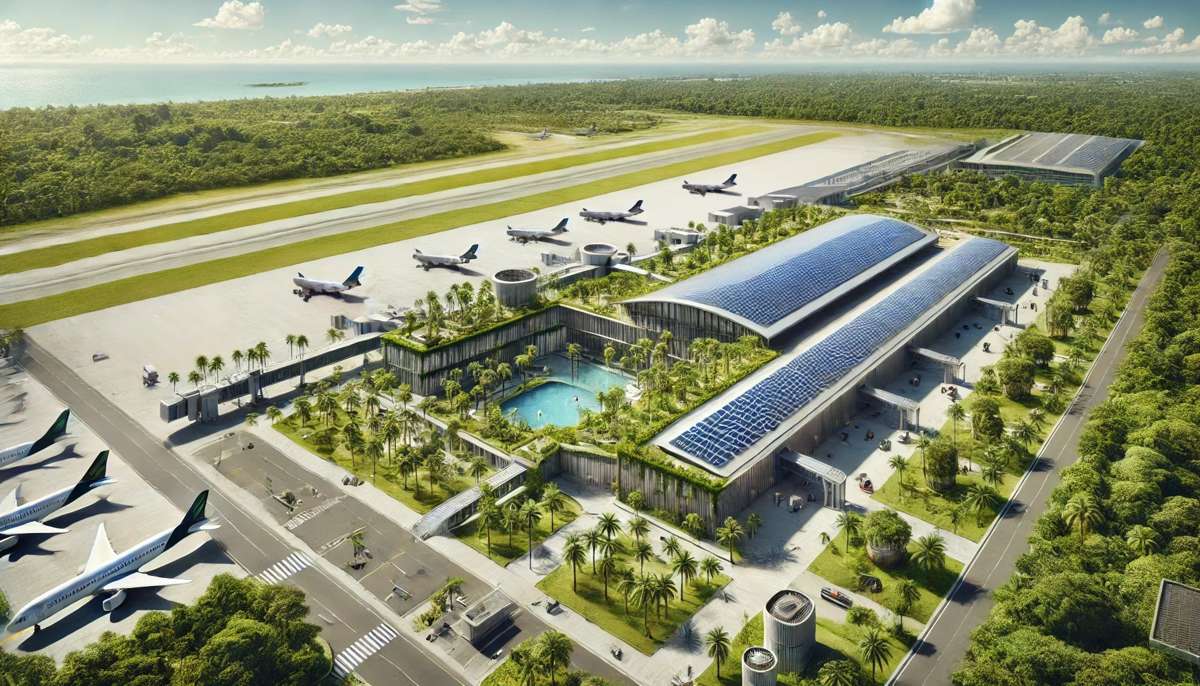Aboitiz InfraCapital wins $76 Billion Airport PPP Contract in the Philippines
The Philippines is taking bold strides in modernising its aviation infrastructure, with the Department of Transportation (DoTr) poised to award the massive PHP 4.53-billion (USD 76 billion) Public-Private Partnership (PPP) contract for the operations and maintenance of the New Bohol-Panglao International Airport.
This move signals a major leap forward in the country’s ambitions to transform its airports into world-class hubs.
Aboitiz InfraCapital Steps Into the Spotlight
By November 28, 2024, Aboitiz InfraCapital, Inc. is expected to receive the formal notice of award for this ambitious project after no other bids were submitted by the November 11 deadline. This development not only reinforces the company’s reputation as a leader in infrastructure development but also sets the stage for a significant partnership with international technical service providers to meet operational demands.
The project’s scope spans a 30-year period and includes extensive upgrades, expansion, and rigorous maintenance of the airport. Designed to cater to growing passenger traffic and elevate the airport’s standing in the region, these improvements will bring modernisation that’s long overdue. The official handover of the airport’s operations and maintenance to Aboitiz InfraCapital will take place on June 22, 2025.
Airport Modernisation
The New Bohol-Panglao International Airport is only one piece of a much larger puzzle. The Philippines government has laid out an ambitious agenda to privatise and modernise airports nationwide, aiming to unlock their full potential as economic drivers. Other airports in line for privatisation include those in Iloilo, Puerto Princesa, and Kalibo—each with its unique role in enhancing regional connectivity and tourism.
This comprehensive airport modernisation strategy aligns with the government’s commitment to improving transportation infrastructure and attracting foreign investment. By handing operational responsibilities to private firms, the government aims to leverage technical expertise, efficiency, and innovation, which are often hallmarks of private enterprise.
Aboitiz InfraCapital’s Proven Track Record
Aboitiz InfraCapital’s entry into airport management isn’t without precedent. The company has long been a trusted name in the infrastructure sector, with a portfolio that spans water, energy, and land development. Known for its meticulous planning and execution, the firm has consistently delivered projects that combine functionality with sustainability.
By partnering with a foreign technical service provider, Aboitiz InfraCapital underscores its commitment to meeting international standards. This collaboration will ensure the implementation of cutting-edge technologies and best practices in airport operations, enhancing the overall passenger experience.
What Makes New Bohol-Panglao Airport Stand Out?
Strategically located in the heart of Bohol’s tourism belt, the New Bohol-Panglao International Airport is often referred to as the “Green Gateway to the World.” This moniker reflects its eco-friendly design, which integrates sustainable features such as natural ventilation and solar power generation.
As the first eco-airport in the Philippines, the facility already enjoys a distinct reputation. However, the planned upgrades under Aboitiz InfraCapital’s stewardship will push the envelope further. Passengers can expect improved terminal facilities, enhanced security protocols, and streamlined processes that reduce wait times and boost convenience.
Economic Growth and Tourism
Privatising and upgrading airports isn’t just about modernising facilities; it’s about unlocking economic growth. Airports serve as critical gateways for trade, tourism, and business, making them vital to a country’s overall development.
In Bohol, tourism is a cornerstone of the local economy. The New Bohol-Panglao International Airport serves as a critical link between the province and the rest of the world, attracting international tourists eager to explore its pristine beaches, Chocolate Hills, and vibrant marine life. By improving airport infrastructure, the government aims to boost visitor numbers and, in turn, generate more revenue for local communities.
The Road Ahead for Airport Privatisation
The success of the New Bohol-Panglao International Airport project could serve as a blueprint for other airport PPP ventures in the Philippines. The government’s broader airport privatisation programme has already attracted interest from domestic and international stakeholders, promising to transform the country’s aviation landscape.
However, the path forward isn’t without its challenges. Stakeholders must address concerns around affordability, accessibility, and environmental sustainability. Striking the right balance between profit and public service will be key to ensuring the long-term success of these initiatives.
A New Era for Philippine Aviation
The awarding of the USD 76 billion contract for the New Bohol-Panglao International Airport marks a significant milestone in the Philippines’ journey towards aviation modernisation. With Aboitiz InfraCapital at the helm, backed by a foreign technical partner, the project is well-positioned to deliver a world-class facility that meets the needs of travellers and businesses alike.
By prioritising innovation, sustainability, and collaboration, the Philippines is charting a course for a brighter future in aviation. As these efforts take flight, they promise to propel the country into a new era of connectivity and economic growth.






























